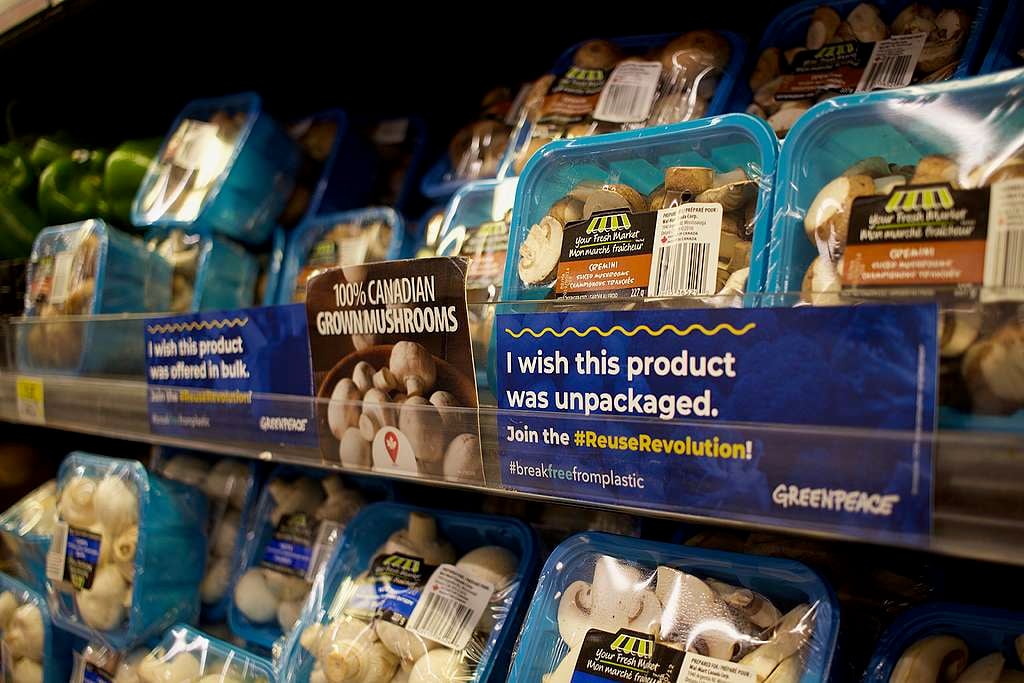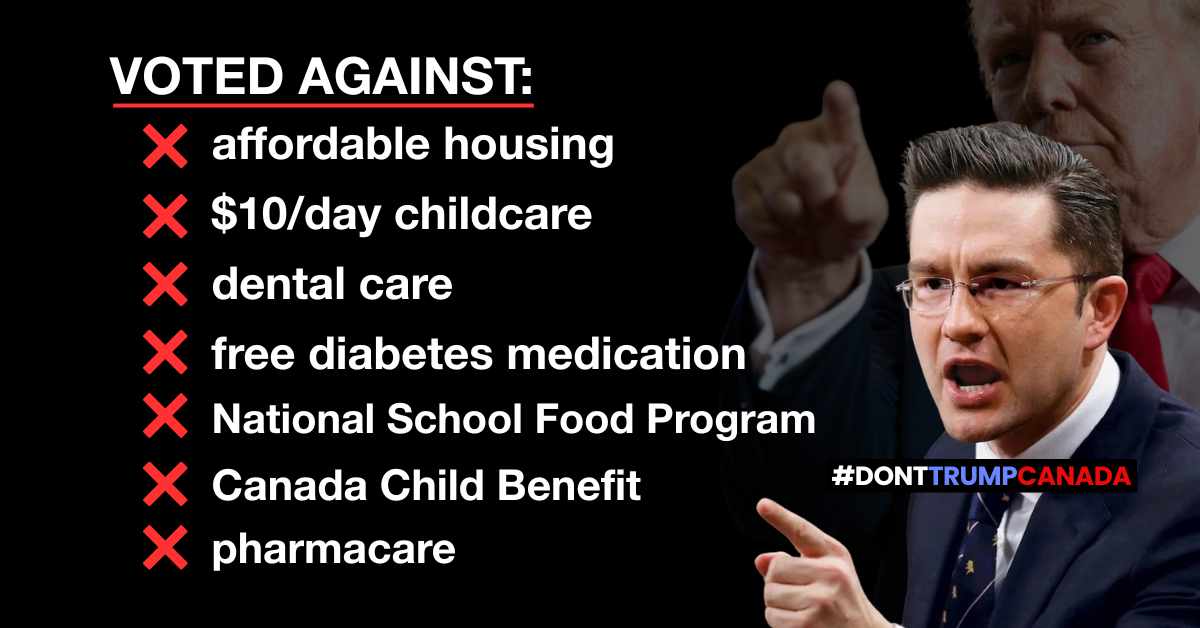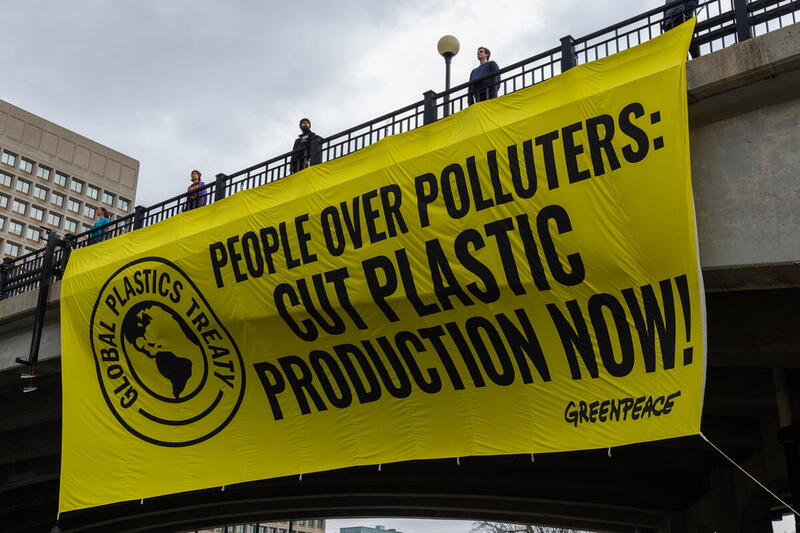There was a time not so long ago when it was still possible to do your grocery shopping without filling your garbage can or blue box with single-use plastic packaging. This has become difficult or even impossible today, given the lack of bulk options or unpackaged products. However, with a growing plastic waste and pollution crisis, retailers must offer ways for their customers to get their groceries without trashing our planet.

As part of Global Refill Week, we did a Canada-wide week of action from November 6th-13th, when our teams of volunteers and members of the public visited several supermarkets across Canada belonging to major chains such as Loblaw, Sobeys, Metro, Walmart and Overwaitea Food Group.
The objective? Spreading the word about the growing demand and urgent need for zero waste shopping options.
What’s #GlobalRefillWeek about?
So, we went through the aisles of the various supermarkets and tried to have our reusable containers filled with some groceries or take-out items. To highlight the lack of zero waste options, we also left placards on the shelves with messages reading:
“I wish this product was unpackaged.”
“I wish this product was offered in bulk”
“I wish this product was offered in a reusable container.”
Would you like to place our placards in your own grocery store? Good news: a printable version is now available! Have a look at the bottom of this blog for instructions on how to proceed.
These Reuse Revolution activities allowed us to assess the options currently available to customers who wish to reduce their plastic footprint. And the situation is not encouraging.
Fruit and vegetables without packaging
In some stores owned by Loblaw, Sobeys, Metro and Walmart, there seems to be some movement towards less packaged fruits and vegetables. However, across the board there is still a tonne of work to be done, and it isn’t consistent across the stores owned by each chain.
For example, customers still need to make a choice between buying organic or consuming without packaging, since the vast majority of fresh organic products are offered in a plastic film. Plastic stickers and labels are also everywhere. This problem could be solved by laser labelling, misting systems and better organization in the fresh produce section.
✅ Progress! Various stores have equipped some of their produce sections with misting systems to keep vegetables fresh without the need for packaging.
❌ Fail. All the grocery stores we visited still have a lot of pointless packaging in the fresh produce section and single-use plastic bags to put unpackaged produce in.

Bulk options
Most major retailers offer limited bulk food like rice, flour, lentils, coffee and nuts. Those offerings are also offered in single-use packaging on shelves, so not reducing actual packaging use. We encountered refill oil at one location in Montreal, but otherwise refill liquid food products were not available. Other easily refilled liquids such as laundry detergent, shampoo or dishwashing soap are not offered in bulk, only in packaged form.
Even where bulk options exist, no store allowed weighing reusable containers for refill, and even where we convinced the take-out counter clerk to do so, the check-out system doesn’t allow for the weight subtraction from the price. Durable reusable bags and containers are not offered in bulk sections.
✅ Progress! Some chains have said they intend to expand their bulk offering and make it cheaper than their packaged counterparts.
❌ Fail. Bulk offerings are inconsistent and some stores of the same chain offer no bulk at all. Without the ability to weigh containers, existing bulk isn’t reducing plastic consumption.

Reusable and returnable containers
Reusable and returnable containers are widely available in zero waste grocery stores and are an attractive option for items that cannot be presented in bulk such as some perishables. However, none of the supermarkets visited offered this option.
✅ Progress! Some stores offer a couple products by brands that come in returnable jar. Loblaw has committed to trial reusable packaging for some products in Toronto stores in 2020.
❌ Fail. Across the board, supermarkets lack reusable and returnable packaging for almost all possible products, and do not offer durable empties for refill in-store.

Refilling your reusable containers in some departments
Have you heard about how you can bring your own reusable containers to the supermarket and get them filled at the prepared food or deli counter? While various stores owned by Loblaw, Metro and Sobeys already offer this option, generally staff lack training, there are restrictions on the types of containers allowed, and self-weigh systems were not evident.

Now what?
Overall, this experience was valuable in providing an overview of the system that contributes to the plastic pollution crisis and the challenges retailers are facing. Many store managers felt concerned about the problem of overpackaging and the lack of a reusable alternatives. Many of them told us about the increasing number of requests for package-free options from their customers. But they are currently unable to implement the changes that would be necessary to reduce the sea of disposable packaging. It is clear that these issues must be resolved at the top. And yet we still haven’t seen the type of comprehensive plastic and disposable packaging policy that would lead to real changes in stores.
That’s where you come into play: mass mobilization is necessary to help our message reach the top! Sign our petition if you haven’t done so already.
If you want to organize your own Refill activity in your grocery store, it’s easy as 1-2-3!
Here’s how to proceed:
- Download our placards, print them on both sides on 100% post-consumer recycled paper and cut them out.
- Before you go to the grocery store, grab your placards, reusable containers and bags. If bulk options are available, try to weigh and fill your containers with the desired products. Otherwise, use the placards to get the message across!
- Where to place the placards?
- “I wish this product was offered in bulk”: staples (rice, pasta, flour), snacks, candies, tea, coffee, spices, cleaning products,personal hygiene products (toothpaste, shampoo, shower gel), beverages, etc.
- “I wish this product was unpackaged”: fruits and vegetables, bakery products.
- “I wish this product came in reusable packaging”: perishables (soups, sauces), frozen meals, beverages, chips, etc.
- Amplify your action! Take pictures of the placards on the shelves and share them on social media using the hashtags #ReuseRevolution and #BreakFreeFromPlastic. You could also geolocate your publication, and make sure to tag the company with your requests for more zero waste options.
We’d love to hear more about your action. Email us at [email protected] or tag us on social media!
This week of action coincided with the release of a Greenpeace USA report, The Smart Supermarket, that presented various solutions currently being implemented around the world to go beyond disposable packaging and encourage the Reuse Revolution. Check it out!




Discussion
A wonderful and appropriate campaign. I support your goal+s and want to help.
I see every day all the canadians purchasing at least one coffee to go in a throw away cup. And all the waste the fastfood chain customers produce! Straws, plastic plates, plastic catlery. If you come from Europe it's just crazy. Who in Canada is talking about this? Isn't it time for laws?
Yes, we should reduce the use of plastics.
Love this initiative to reduce packaging but retailers don’t have as much control as we’d like to think. With razor sharp margins and fierce competition in grocery, retailers are reluctant to change without a ton of consumer pressure. And given that prices would likely increase as a result, consumers will balk. I’d like to see our government be way more aggressive with mandating change... choose a biocompostable grocery and produce bag for those that don’t bring their own bags to shop and charge them the actual cost to provide it... behaviour would change quickly. We need to put pressure on manufacturers and importers as well to do better with packaging. We can’t put all of the responsibility on retailers. Tax incentives to business to reduce/change packaging would go a long way. This is what good government does- use tax dollars to create change rather than squander it on pipelines. Let’s keep the pressure on our elected officials to govern now and into the future and actually lead us into a cleaner, viable future.
Stores are also committed use 1-time plastics because, I think they are reimbursed for their use by the plastic companies. Could be wrong about but how much profit do the stores get from using 'one time 'bags, if any!!!
I am making see through light nylon bags from recycled sheer curtains 14"x18" and am distributing them for free wherever I can. they can be used for fruit ,veg or bulk dry goods. Vendors at farmers markets take them and people in line at the grocery store. It is a small gesture but it seems to get others inspired to makke their own.
THIS HAS TO BE DONE. THE AMOUNT OF TIME I SPEND GOING TO NICHE UNPACKED STORES- NOT TO MENTION THE PRICE- IS UNFAIR AND MAKES NO SENSE. MY LOCAL STORE SHOULD NOT ONLY OFFER MOST STUFF WITHOUT PACKAGING, BUT IT SHOULD BE CHEAPER! THE LOW COST OF THIS SPINOFF (WASTE PRODUCT) FROM THE FOSSIL FUEL INDUSTRY DOES NOT REFLECT THE TRUE COST TO ALL OF US AND THE PLANET. I FEEL LIKE I FIGHT A PLASTIC WAR DAILY....
good move!
Why not? ?
I have been trying to use my bags made by special fabric and don’t use what is in the supermarket, I can wash this bags and use them again! I am trying to contribute to help our environment, and I am glad and grateful that you help us to do the best we can!!!
Great idea. We need to not only tell governments to restrict use of one time use plastics, but also let the retailer know that we want to reduce the use of throw away packaging.
As you mentioned in this article, we are always torn between buying organic (which as you said is usually packaged) vs buying the same items that are available in bulk, unpackaged. What is the best, most environmental thing to do??? Is the campaign over? Should we continue putting out placards?